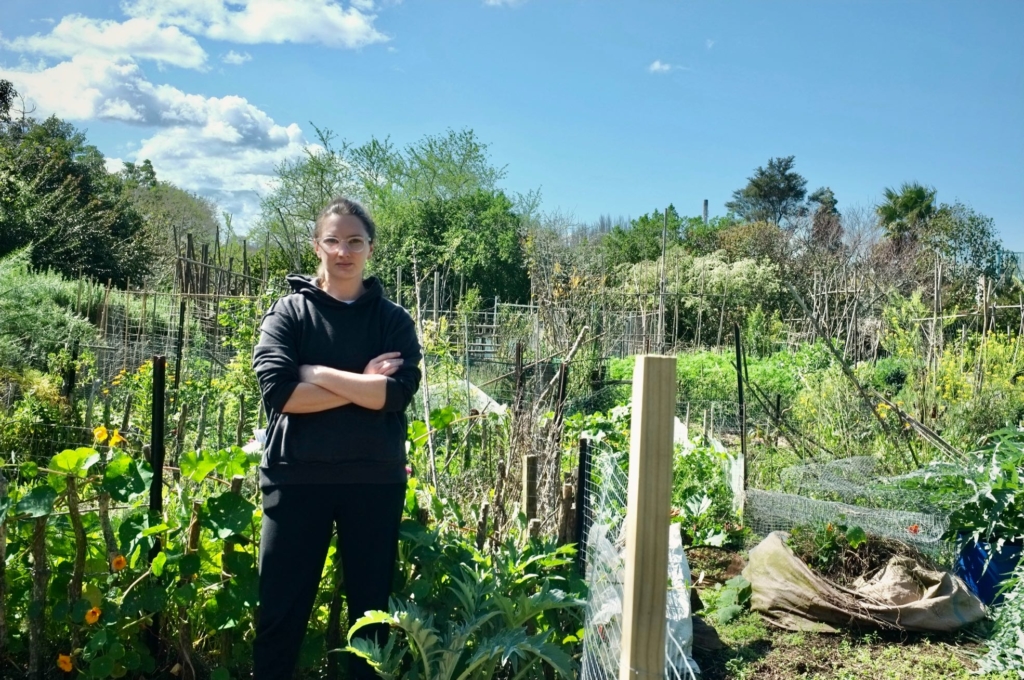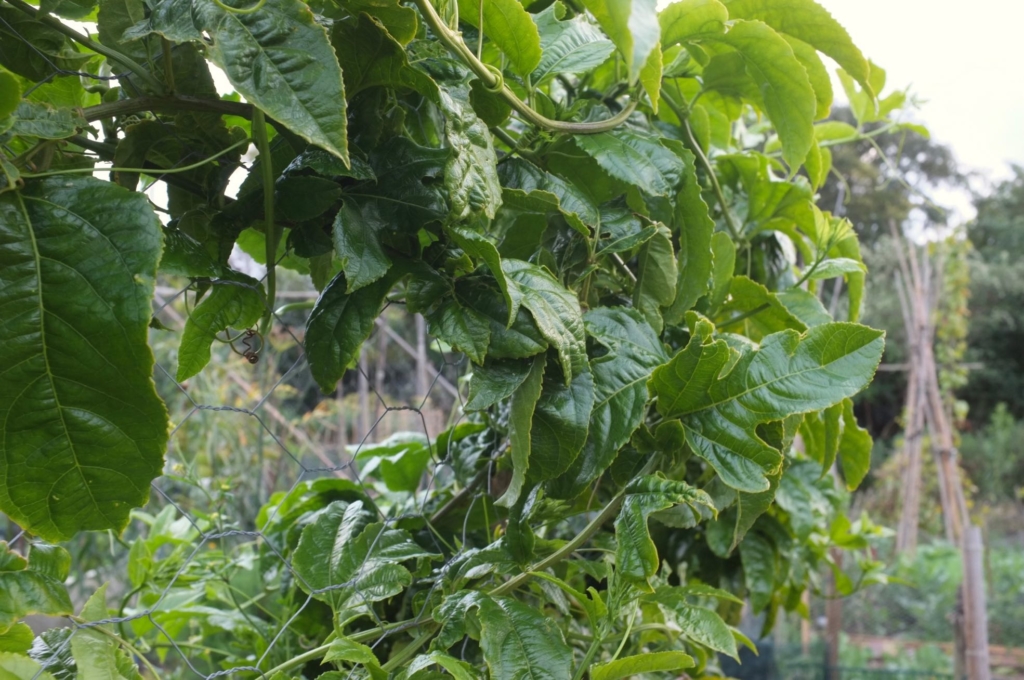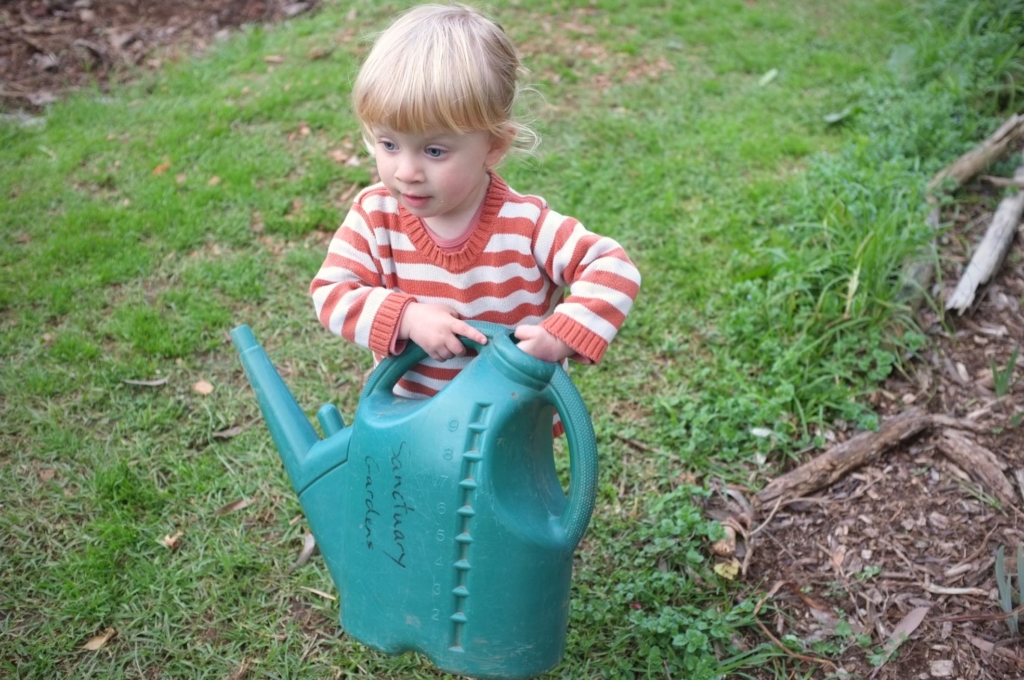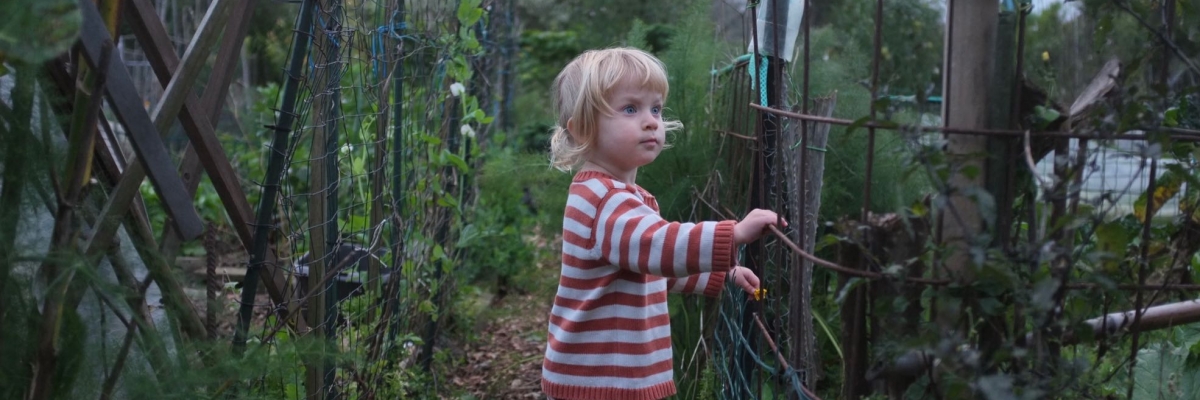It was not long after the first Covid-19 lockdowns that my mother Jane first floated the idea of Secret Gardens. My daughter had just turned one and I was struggling to find motivation getting back into my doctoral research after taking maternity leave. In hindsight, I can see that both Mum and I—like so many of us with the time and space that lockdowns brought—were reassessing how we wanted to fill our days, informed by what was really important to us.
I had always tried to build and maintain a garden in some capacity, but moving between student flats hadn’t been conducive to taking the time to grow healthy soil and embark on any projects with a direction for its future. Mum has always gardened too, adjusting the scale of her garden ambitions to her parenting and work commitments over the years. I remember us sowing carrots together, I was around five, and once they germinated I regularly checked if the carrots were ‘there yet’ by pulling them up by the stalk, then stuffing them back into the ground (needless to say I don’t think the carrots ever appeared!)
During these early Secret Gardens days, I became an allotment holder at Sanctuary Mahi Whenua. A community permaculture garden in Mount Albert, Mahi Whenua is on land that was part of Carrington Hospital’s self sufficient farm throughout the twentieth century, and is where Māori gardening implements were discovered in the 1990s when it was was used for Unitec’s horticulture students for a decade or so. Mum had also recommended Melissa Harrison’s podcast ‘The Stubborn Light of Things.’ I listened to it daily, started making (long term!) plans for my humble 3x3m garden, applied for teacher’s college, and jumped on the Secret Gardens train.

In her book of the same title, Harrison writes, “…the things we choose to look at in life loom large, changing the version of reality we live in, whether it’s cars or fashion or the natural world. Knowing one bird from another tells me how many species are around me, populating my urban world with their lives; learning about trees has made my city greener, because my eye no longer passes over them as though they were hardly there. If you live in a city and miss ‘nature’, the answer doesn’t have to be to move out; it’s to tune in.”
This notion of ‘tuning in’ has such great weight—to living in central Auckland, to walking the same streets every day of lockdown, to deciding how to spend our days, and to finding the hidden gardens in our own neighbourhoods. Secret Gardens has brought all these threads together for me over the past year. It has connected my mother and I in a new way, with a shared project, despite frequently being distanced by lockdowns. It has informed my own gardening through the conversations I’ve had with Mum about what values are important to Secret Gardens, and these values have become vital in my own life as a parent and teacher. Above all, the hosts I have been lucky enough to speak with and photograph in their gardens, well, ‘inspiring’ feels too flippant for the confidence and courage they have given me in both gardening and life. They are all so diverse as gardeners and people, yet their commonality is an enormous love for what they do, and absolute clarity about why it’s important—important for themselves, their families, their communities, and their land.


